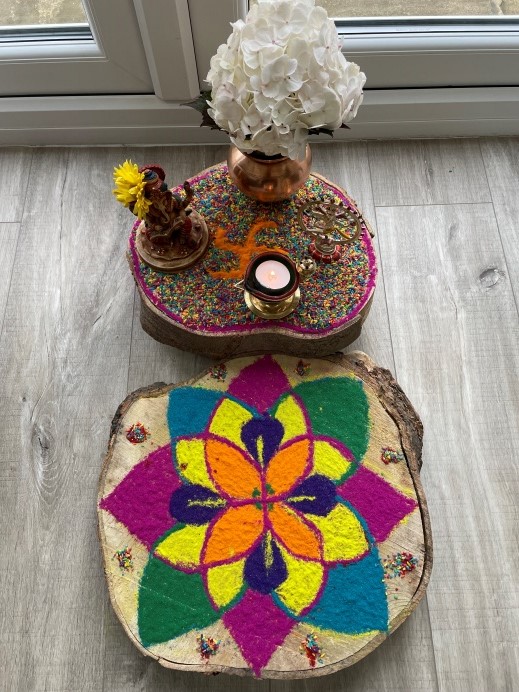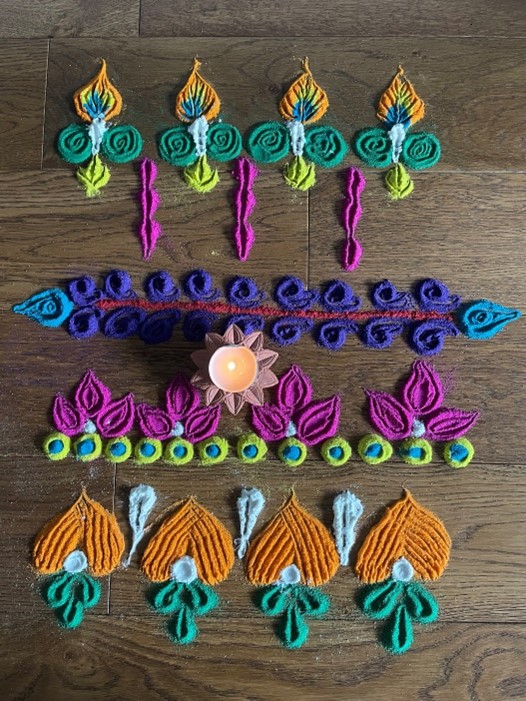Wishing you a happy and safe Diwali
Pratima Parmar from our Health Informatics Service shares experiences of Diwali, from a Hindu perspective.
Diwali, also known as Deepawali – means the Festival of Lights. Diwali is celebrated by Hindus, Sikhs, Buddhists and Jains, although for each faith it marks different historical events and stories.
Diwali is Hindu’s most important festival of the year. It is a time to celebrate the triumph of light over darkness, knowledge over ignorance, and good over evil. The dates of this festival are based on the Hindu lunar calendar, which marks each month by the time it takes the moon to orbit Earth (it is usually celebrated between late October and early November).
Hindus celebrate Diwali over five days.
Day 1 – Dhanteras: We worship Lakshmi, the goddess of prosperity.
Day 2 – Kali Chawudas (Halloween night): Hindus worship goddess Kali to destroy evil around us. We also make special food e.g. pakoras called Wadas.
Day 3 – Diwali: Honours Lord Rama and his wife Sita returning to their kingdom of Ayodhya.
Day 4 – Annakut – Hindu’s New Year: We celebrate by going to the Temple and exchanging greetings. It is traditionally a time for exchanging gifts, seeing family and friends and wishing peace and goodwill to all.
Day 5 – Bhai Dooj: The fifth day is important to Hindus as it is dedicated to the relationship and lifelong bond between brothers and sisters. It is celebrated with food, gifts and prayers.
Before and during the Festive Season, we make special snacks and lots of Indian sweets called Mithai. We light Diyas (candles) in the house. We put up festive lights around the house and ornate our entrances with Rangoli (brightly coloured patterns) to welcome family and friends. Diwali is celebrated with the lighting of fireworks and is celebrated all over the world.

